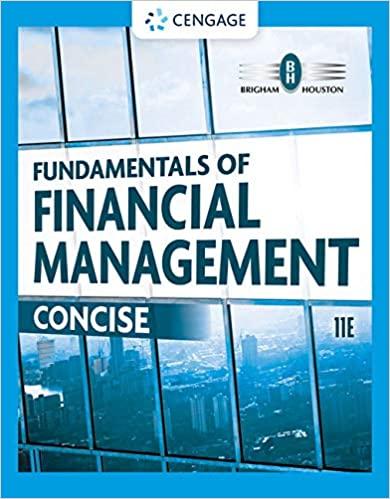Question
Recently, the portfolio manager (PM) of a reputable equity investment firm, PSCM, L.P. Has been considering the purchase of additional shares of Starbucks (ticker symbol
Recently, the portfolio manager (PM) of a reputable equity investment firm, PSCM, L.P. Has been considering the purchase of additional shares of Starbucks (ticker symbol and hereafter SBUX).The PM would like your help in completing the analysis of the value of SBUX.To begin, the PM estimates that SBUX should be able to generate same-store sales (SSS), a key industry metric, of 3% with an upside to 5% longer term. The PM summarizes her investment thesis in SBUX as follows:
- The company is a dominant in the secular brand and attractive coffee category;
- It has strong unit economics and customer value proposition proven over decades;
- A recent slowdown in US SSS was noted but deemed fixable with remedial actions underway;
- There's a new management leadership in place which has taken encouraging actions to date.
However, she was unsure if SBUX truly represents a rare opportunity to own one of the world's best businesses at a discount.The current market price per share is $58.66.In that regard, she wants your help to assess the potential of SBUX share to more than double in value over the next three years.Tables 1-5 (see attached picture) present financial statements and related information for the company.
Other Information on SBUX provided by PSCM:
The company is a leading specialtycoffee retailer and iconic brand with 29,000 stores with over $32 billion in systemwide sales with a 50/50 split between the US and International markets.China will become an increasingly greater percentage of the total company over time.In fact, China will become increasingly important to the valueof SBUXover time as it represents the company's single-largest unit growth opportunity with the best store-level unit economics.SBUX has generated an annualized total shareholder return (TSR) of 26% of the last ten years, twice the return of the S&P 500 over the same period.However, SBUX shares are down 6% over the last three.Including dividends, shareholders have earned 0% total return, despite EPS growth of approx. 50%.The company is currently trading at 22x consensus P/E, a substantial discount to recent historical averages of 26x.Management has announced a share repurchaseplan of $14 billion over the next two years, nearly 20% of the current market capitalization.Overall, premium coffee is a secularlygrowing and attractivecategory with frequentconsumption creating a loyal customer base and trade-up potential, aligned with health and wellness and sustainability trends. From an industryperspective, coffee is secularly attractive category.Premium products are outgrowing traditional offerings and away-from-home is gaining sharefrom at-home.Over $100 billion in coffee-related acquisitions have been completed since 2012, at valuation that average 20% more than where SBUX now trades.SBUX' globalmarket share in specialist coffee shops is 15x larger than the #2 player (McCafe) and over 3.5x larger than the other top 10 players combined.
Required:
FIND THE VALUATION OF STARBUCKS USING THE FOLLOWING MODELS (SHOW WORK)
Estimate the value of a share of SBUX using the following valuation models
a) Dividend Valuation Model using a constant growth or variable growth;
b)Free Cash Flow to Equity (FCFE) valuation process, using a constant or variable growth model;
c) Price-to-Earnings Approach;
d) Price-to-cash flow approach
e) Price-to-book-value approach
For each model, describe clearly and succintly other reasonable assumptions to support your valuation, such as for example,drivers of sales, profit margin, changes an working capital, debt levels, etc. as relevant.70% of the assessment grade is based on the reasonableness of your assumptions and the remaining portion on your calculation.I suggest that you submit a spreadsheet of your calculations.
f) Comments on the benefits and limitations associated with each of the valuation model you used above.Name and explain at least two benefits and limitations of each model.



Step by Step Solution
There are 3 Steps involved in it
Step: 1

Get Instant Access to Expert-Tailored Solutions
See step-by-step solutions with expert insights and AI powered tools for academic success
Step: 2

Step: 3

Ace Your Homework with AI
Get the answers you need in no time with our AI-driven, step-by-step assistance
Get Started


